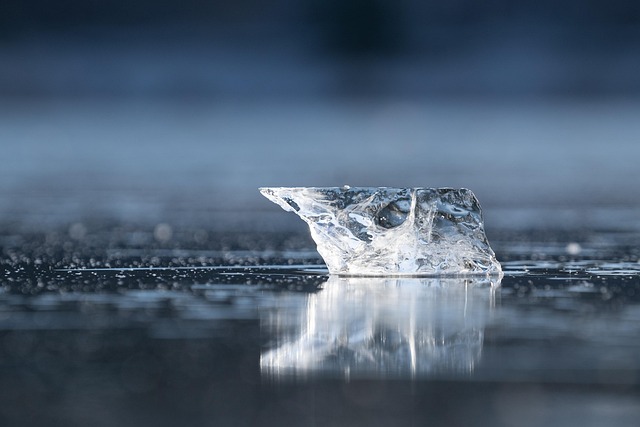Cold plunges, brief exposures to cold water, offer a powerful tool for managing stress and anxiety by triggering physiological responses that reduce stress, elevate mood, and improve cognitive function. These benefits include reduced brain inflammation linked to improved emotional regulation. Regular cold water therapy, such as ice baths or cold showers, stimulates the release of endorphins and norepinephrine, leading to better mood regulation, lower blood pressure, and enhanced relaxation. Incorporating cold plunges into self-care routines can significantly combat daily stress and anxiety, promote mental well-being, and foster resilience over time.
Uncover the powerful benefits of embracing the cold for your mental well-being. This article explores how a simple practice—cold exposure through cold water therapy and cold plunges—can significantly enhance mood, combat negative thoughts, and reduce stress and anxiety. Discover the science behind this ancient technique, its calming effects on the mind, and practical tips to incorporate cold plunges into your routine for optimal mental health.
Unlocking Mental Resilience: The Science Behind Cold Plunges
Cold plunges, or brief exposures to cold water, have gained attention for their potential to unlock mental resilience and combat stress and anxiety. The science behind this lies in the profound physiological response that cold water elicits in our bodies. When we immerse ourselves in a cold environment, whether it’s a cold plunge pool or even a quick cold shower, our nervous system is triggered. This stimulation releases a cascade of hormones and neurotransmitters that not only provide physical benefits but also play a significant role in regulating our mood and mental health.
One of the key components of this process is the increase in noradrenaline levels, often associated with reduced stress and anxiety. The cold water therapy also triggers a release of endorphins, known as our body’s natural ‘feel-good’ hormones, which contribute to an elevated mood. Moreover, cold exposure has been shown to reduce inflammation in the brain, a factor linked to improved cognitive function and emotional regulation. These calming effects can be particularly beneficial for individuals dealing with stress, anxiety, or even depression, offering a simple yet powerful tool for enhancing mental health and overall well-being.
Cold Water Therapy: A Natural Remedy for Stress and Anxiety
Cold water therapy, such as a cold plunge or immersion in ice-cold water, has gained attention as a natural remedy for stress and anxiety. The practice involves briefly exposing oneself to extremely cold water, typically through a cold shower, ice bath, or even a cold river or lake. This form of cold exposure has been shown to have significant benefits for mental health, particularly in reducing stress and anxiety levels.
The calming effects of cold plunges are attributed to several physiological responses. Cold water triggers the release of endorphins, often referred to as “feel-good” hormones, which can reduce pain perception and create a sense of well-being. Additionally, it stimulates the vagus nerve, a key component of the body’s parasympathetic nervous system, promoting relaxation and reducing stress reactions. Regular cold water immersion can help individuals build mental resilience, making them better equipped to handle stressful situations and negative thoughts.
Benefits Beyond the Body: Cold Exposure and Its Calming Effects
Cold exposure goes beyond physical benefits; it’s a powerful tool in managing stress and anxiety, two prevalent mental health challenges in today’s fast-paced world. When you immerse yourself in cold water, whether through a cold plunge or a short cold shower, your body triggers a cascade of physiological responses. This includes the release of endorphins, often referred to as ‘feel-good’ hormones, which can significantly reduce stress and anxiety levels. The sudden exposure to cold also prompts the body to release norepinephrine, a neurotransmitter that helps regulate mood and attention.
The calming effects don’t stop there. Cold water therapy has been shown to slow down the heart rate and lower blood pressure, creating a sense of tranquility and relaxation. This physical response can help alleviate symptoms of depression, improve sleep quality, and enhance overall mental resilience. Moreover, cold exposure can act as a form of natural stressor, helping the body build tolerance and promoting a more balanced reaction to stressful situations over time.
Incorporating Cold Plunges into Your Routine for Optimal Mental Health
Incorporating regular cold plunges into your self-care routine can be a powerful tool to enhance mental well-being and combat daily stress and anxiety. The practice involves briefly exposing yourself to cold water, typically through an ice bath or a cold shower. This simple act triggers a cascade of physiological responses in the body that have profound calming effects. When you immerse yourself in cold water, it prompts a ‘fight or flight’ response, but unlike chronic stress, this temporary activation can lead to reduced anxiety levels and improved mood over time.
The benefits extend beyond the immediate physical sensation. Cold water therapy is known to stimulate the release of endorphins, often referred to as ‘feel-good’ hormones, which contribute to a sense of relaxation and happiness. Moreover, it can disrupt negative thought patterns by interrupting the neural pathways associated with stress and anxiety. Whether it’s a quick cold shower in the morning or an ice plunge after a stressful day, these practices offer an accessible and effective way to support mental health and foster a more resilient mindset.
Cold exposure through practices like cold water therapy offers a natural and powerful way to enhance mood, combat negative thoughts, and boost mental resilience. By incorporating regular cold plunges into your routine, you can experience the profound calming effects that extend far beyond physical benefits, contributing to improved mental health and overall well-being. Embracing the science behind these ancient practices, we can unlock our inner strength and find solace in simple yet transformative experiences like a cold dive.
